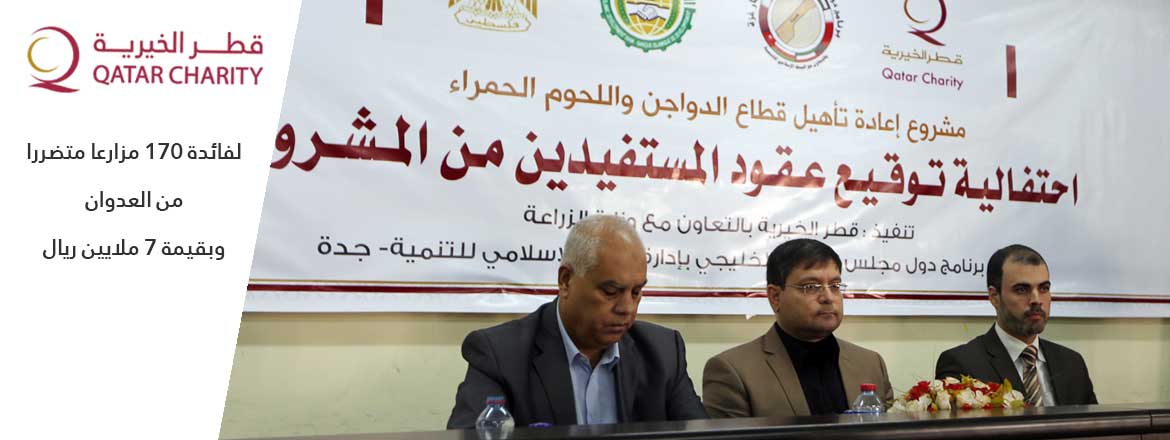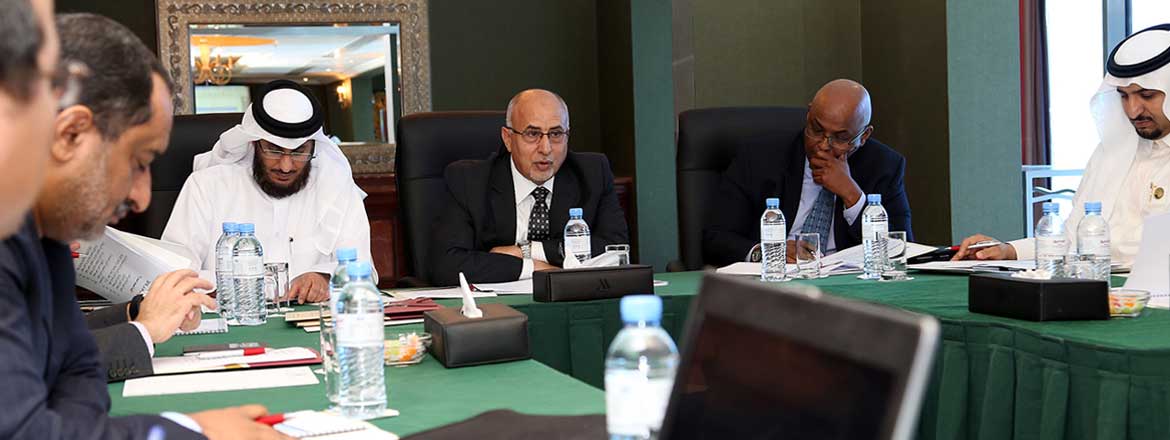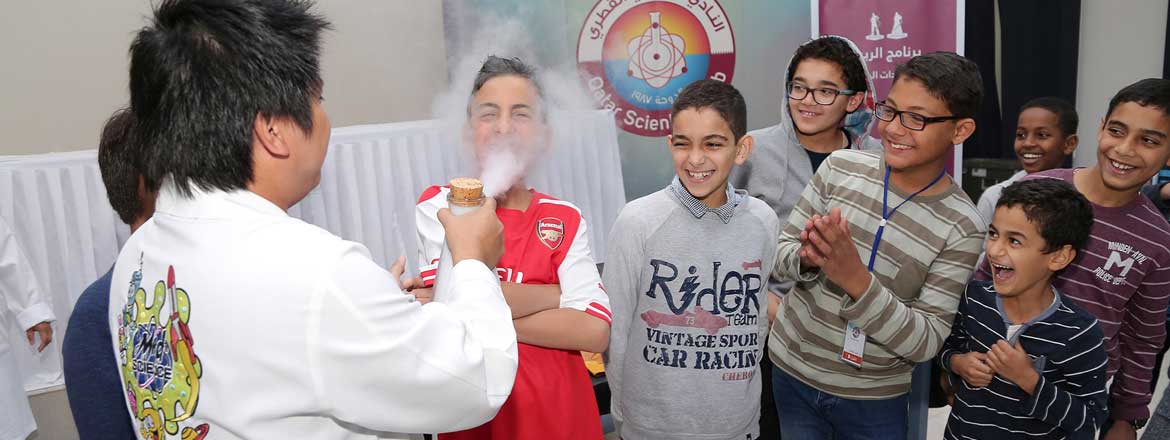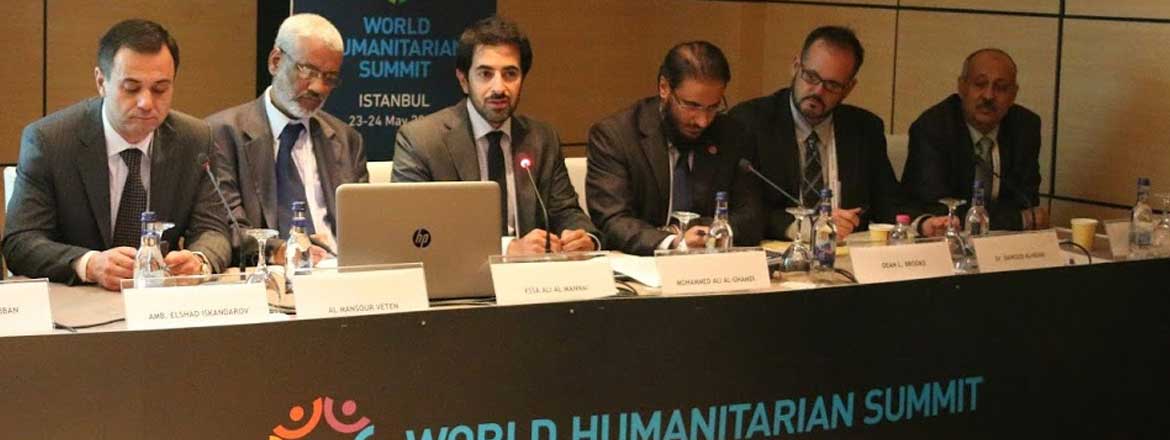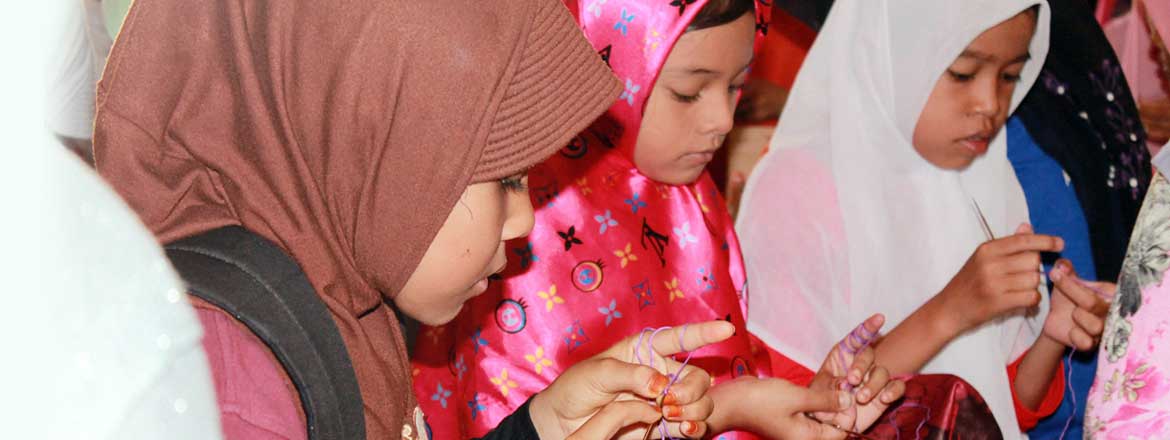QC Participates in World Humanitarian Summit Events
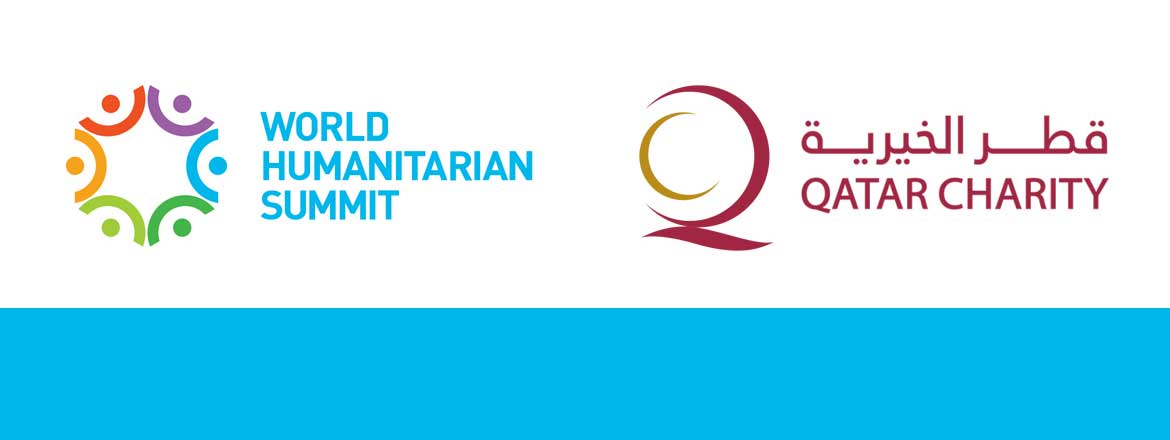
2016-05-29T02:28:59+01:00

Al Kuwairi:
In partnership with Qatari organizations, QC organizes and supervises a session on education and its role in post-crisis regions
QC already organized an introductory meeting about World Humanitarian Summit in cooperation with OCHA.
QC will participate in the World Humanitarian Summit events which will be held in Istanbul on May 23 – 24. Headed by Mr. Youssef bin Ahmed Al Kuwairi, QC's CEO, the delegation will attend and participate in the Summit.
The Summit's events include meetings for the leaders and round-table discussions. In addition, the Summit has exhibitions that focus on the humanitarian field. Istanbul's Summit is considered a historical event since it is the first time for something this huge to happen about humanitarian affairs.
Effective Participation
Mr. Youssef bin Ahmed Al Kwairi stressed on the fact that QC's participation in the Summit's events is considered very effective. QC will attend the main sessions, where presidents, leaders and delegations' chiefs will meet and talk.
"QC will organize and supervise a session on education and its role in post-crisis regions in partnership with Qatari organizations such as Qatar Development Fund, Education Above All, Silatech, Reach Out to Asia, ISESCO, Arab League for Society and Science, the Humanitarian Forum and Islamic Development Bank, QC's strategic partner.
Qatari Institutions
Mr. Al Kuwairi pointed to the fact that the Qatari charitable institutions play a key role internationally in the field of humanitarian response and encouraging partnerships. "The Qatari institutions now play a vital and essential role in the response policies through their intense activities with national and regional institutions.
Cooperative Meeting
In cooperation with UNOCHA, QC organized a meeting in the beginning of May in Doha to introduce the World Humanitarian Summit and was attended by 15 Qatari governmental and humanitarian organizations.
During the meeting, the participants discussed the importance of coordination between Qatari humanitarian institutions to exchange information regarding the coming Summit and the nature of participation of each participant. They also discussed the need for cooperative coordination and mutual support. The organizations agreed to coordinate with competent authorities in Qatar such as the Ministry of Foreign Affairs so as to best serve Qatar at humanitarian work level.
Preparatory Workshops
For the past few years, QC has sponsored and financed a series of national and regional consultation workshops about the World Humanitarian Summit. It organized 7 workshops: One in Qatar, two in Palestine (West Bank and Gaza Strip), one in the Balkans (in Macedonia), fone or the Syrians in Gaziantep (Turkey), Morocco and Turkey. The workshops were held in cooperation with UNOCHA and the Humanitarian Forum\ Britain. QC has also participated in the preparation of the Summit through attending all the national and reg
Related News
QC Implements a Project to Rec
- The Project is Implemented by QC and sponsored by the Gulf Cooperation Council under the administration of the Islamic Development Bank – Jeddah
Sponsored by the Gulf Cooperation Council under the supervision of the Islamic Development Bank – Jeddah, QC implemented a project to recover the poultry and red meat sector in Gaza Strip. 170 affected Palestinian farmers in Khan Younes (in the Southern region of Gaza strip) out of 533 affected farmers across the strip signed contracts to benefit from the project.
Receiving the Amends:
The project cost more than 7,000,000 QR. The money is supposed to be delivered in payments to the farmers according to their needs and losses.
During the contracts’ signing ceremony that was held in Khan Younes Engineer Mohammed Abou Haloub, QC’s director in Gaza, said, “Supported by the Islamic Development Bank in Jeddah and the Gulf Cooperation Council, QC emphasizes their commitments towards their Palestinian brothers and sisters.” Mr. Abou Haloub also said that the project was implemented in complete cooperation and coordination with the Palestinian authorities; mainly the Ministry of Agriculture. The aim was to achieve fair distribution of the project’s budget to the chosen owners of damaged farms, especially the farmers damaged by the 2008 and earlier Israeli attacks which targeted all governorates in Gaza Strip.
He addressed the beneficiaries saying, “We are aware that any amends or money amounts presented by the project comprise only a little of your loss and sufferance.” He emphasized that the project presented financial support to 533 affected farmers across the strip.
Production Improvement
Abou Haloub thanked the contributors to the project’s funding and administration, led by the Gulf Cooperation Council’s program for Reconstructing Gaza Strip, the Islamic Development Bank in Jeddah, and the national staff including mainly the members of the project’s instructive committee and the technical and management staffs.
Mr. Adel Atallah, the Assistant under Secretary of the Ministry of Agriculture, deeply thanked QC’s office in Gaza for its efforts to support agriculture and develop the animal production.
Mr. Atallah emphasized that the Ministry was happy to cooperate with QC for the benefit of the farmers affected by the aggression in the Gaza Strip. He stressed that these farmers should make the utmost use of the project’s amends to reform the damaged farms.
Meanwhile, Mr. Imad Al-Agha, Head of Public Relations in the Municipality of Khan Younes, commended QC’s efforts to serve different sectors in Gaza including agriculture and animal production.
He said, “I thank you on behalf of the Mayor and staff of the Municipality of Khan Younes. We appreciate the generous efforts paid by Qatar and the office of QC in Gaza. The efforts have clear and direct impact on improving Gaza’s infrastructure and reconstructing the damage caused by the Israeli Occupation in Gaza.”
The farmer Nafe’ Abu Rass delivered a speech on behalf of the farmers. He thanked the Qatari government, people, and associations for their efforts in amending the farmers affected by the aggression. He also stressed on the need for Qatar’s continuous efforts to relieve the Gaza Strip from the siege.
Water Filtration
As part of its project to restore and develop agricultural lands, QC had previously drilled a well for the benefit of 50 farmers from Umm AlNasr Village in the northern region of the Gaza Strip.
The well irrigates 100 donums of agricultural land, serving 50 Palestinian farmers who suffer from water scarcity in the region. This project should allow them to invest in the land by varying crops.
Before this, QC worked on securing potable water for over 3,000 poor Gazan families. Seeking to face the water crisis in the Gaza Strip, QC is implementing a project to filter rainwater and inject it in the underground tanks of 30 public schools. The project is to help face the water scarcity from which the inhabitants suffer. All these projects were funded by the Gulf Cooperation Council and the Islamic Development Bank in Jeddah.
In its report regarding the water status in the Gaza Strip, the United Nations warned about how dangerous the situation is. The report said that things would be catastrophic if nothing was done to fix them. It also pointed that the Strip needs desalination plants much more than it does roads.
QC and 12 Humanitarian Organiz
- His Excellency Abdul-Raqib Saif Fath, "QC has contributed to the alleviation of the sufferings of the Yemeni people."
QC hosted a preparatory workshop organized by QC and 12 other humanitarian organizations. It was attended by His Excellency Mr. Abdul-Raqib Saif Fath, Minister of Local Administration and the Chairman of the Higher Committee for Relief in Yemen.
The initiative committee included the Higher Committee for Relief, Organization of Islamic Cooperation, Arab League, United Nations Office for the Coordination of Humanitarian Affairs (OCHA), King Salman Humanitarian Aid and Relief Center (Saudi Arabia), The International Committee of the Red Cross (Switzerland), Qatar Charity Society, International Humanitarian City (Emirates), International Medical Corps (United States of America), International Islamic Charitable Organization (Kuwait), Humanitarian Relief Foundation (IHH Turkey), Start Network (Britain), and International Council of Voluntary Agencies (ICVA in Switzerland).
The workshop was held for the preparation of the Conference of Humanitarian Crisis in Yemen: Challenges and Prospects of the Humanitarian Response. The initiators met for consultation, coordination and cooperation so as to face the deteriorating situation of the Yemenis and their increasing sufferings.
Humanitarian Contributions
During the workshop, Mr. Fath spoke about the great humanitarian efforts QC exerted to alleviate the sufferings of the affected Yemenis who have been suffering from the recent escalation of the crisis in their country.
In addition, he displayed to the attendants the humanitarian circumstances in Yemen and clarified the procedures that are followed in dealing with the situation. He explained, "Our work is divided into several stages. The first stage includes an urgent relief campaign for all of the territories. We are done working on this stage and we started with the second stage which covers the territories where hostilities have stopped. We identify the needs and in cooperation with our partners, we plan our response."
Mr. Abdul-Raqib commended QC's work. "QC is considered to be one of the most active humanitarian organizations in Yemen. With the continuous increase in the numbers of the injured in Yemen, QC's support to the Health sector is spectacular. The Health Sector requires bigger operating theatres and more ambulances," added he.
The conference seeks to unite the visions of the active partners in assisting the Yemenis. It aspires to set the floor for an exchange of information, reinforcement of applied procedures related to identifying the Yemenis' needs according to their type and geographical distribution. It is also to help develop the work plans and joint initiatives.
Mr. Mohammed bin Ali Al Ghamdi, QC's CEO of International Development, said that QC has proven its entire and continuous commitment to offering humanitarian and relief aids to the Yemenis. "QC has not spared any effort to alleviate the sufferings of the Yemenis and provide all the necessary means and supplies for a better life."
He also emphasized on QC's role in hosting and organizing the conference about the Yemeni crisis and how such efforts reflect QC's continuous work for the benefit of the Yemenis regionally and internationally. "QC always makes sure to coordinate, cooperate and exchange information with active humanitarian actors in the Yemeni crisis. It also prioritizes implementing relief projects inside Yemen considering the fact that its people are in deep need for aids. Many people who live there suffer from great shortages in drinking water, food and medications," said he.
QC, as Al Ghamdi said, will exert more efforts to respond to the most urgent calls for relief. It will cooperate with all of the active partners and the parties interested in the Yemenis' affairs, whether those related to the displaced, the besieged inside Yemen, or refugees outside Yemen in order to enable them to receive all of the means for a dignified life.
"Yemen, We Are With You"
It is worth mentioning that QC had already inaugurated a campaign entitled 'Yemen, We Are With You' when the crisis first started. It aimed at collecting a financial support of 36,500,000 QR in order to provide food and medication to around 1,260,000 Yemenis. QC also hosted the workshop on the humanitarian situation in Yemen which was attended by several humanitarian institutions from the Gulf and the Islamic World. The meeting resulted in creating a mechanism and a plan for urgent humanitarian intervention, and announcing commitments and pledges by the participants in order to hurry in offering urgent aids.
Qatar Charity Organizes Winter
- "We hope that our national institutions would follow the steps of ExxonMobil Qatar and Microsoft Qatar’s and support the child-centered programs."- Director of QC centers
As a part of its annual winter program, the fourth edition, the Executive Department for Local Development at QC launched "Leaders of the Future" program for the orphans that Qatar Charity is sponsoring.
The program included a workshop for programming computer games that targeted more than 20 "future-leaders" students. The workshop aims at developing the skills of using computers and at introducing the children to programming principles, and using Microsoft’s Kodu visual programming language. Microsoft Qatar had hosted the programming part of the camp and offered a skilled trainer who delivered an intense workshop for around one week. The children were able to program a game of their own creation and tested it practically with their peers.
Ali Al Gharib, Head of the Local Developmental Centers at QC, stated, “The Winter camp was organized with the aim of integrating the "future leaders" with the society in an atmosphere of benefit and joy.”
The executive department of local development at QC organized the annual spring program for more than 130 future-leader students starting last January until 4th of February. In addition to the computer games programming workshop, the camp included Science Made Fun Workshops facilitated by Qatar Science Club, arts & crafts workshops, a robotics workshop, sport activities and other soft skills courses (Building Self-Confidence , Being Positive).
The program received the attention of ExxonMobil Qatar that sponsored it and made its implementation possible.
Stated that "In Qatar, ExxonMobil provides the energy to drive human potential through its partnerships and support of local programs, such as Qatar Charity’s Future Leaders program. By encouraging students to learn new skills and make full use of their personal talents and strengths, the Future Leaders program is helping to develop the next generation of Qatar’s workforce,” said Abdullatif Al-Naemi, National Development Manager for ExxonMobil Qatar. “The program creates an interest in programming at a young age and provides participating children with an opportunity to learn computing skills – a necessary requirement as the world becomes ever more dependent on computers.”
“We are proud to play a role in helping foster a powerful generation of workers who are tech-savvy and confident, and who can build a bright future for Qatar,” he added.
Al Gharib appreciated ExxonMobil Qatar’s support and full cooperation with QC to organize the event. He wished that all local institutions and organizations would follow the same path as part of their social responsibilities to boost the local society, especially in the field of cultivating skills and talents.
Winter Programs
It is worth mentioning that the QC Community Development Centers, under the executive department of local development, have organized events for the winter vacation that target hundreds of students, especially orphans. The events include camps, Umrah trips to Mecca, and different cultural, educational, and entertainment activities. The targets of these events are students from different schools and ages.
Future Leader
QC gives priority for social and educational care for the "future leaders" candidates, filling their free time with activities that would help them and deepen their belief to make them capable of bearing the burdens of life. The programs aim at sharpening the children’s skills and abilities through various cultural, entertainment, and sport activities. They also offer care for the orphans’ families.
Social Responsibilities
QC has established a specialized center for community partnership to introduce the QC developmental programs, and to exert efforts to bring such programs into effect through partnerships with the public and private sectors. QC has singed many partnerships with national organizations and companies, allowing them to provide effective community programs that are designed, implemented, and socially tested by a specialized team at QC. This offers the chance for different institutions to maximize the impacts and benefits of the budgets allocated for community programs by approaching QC CSR team.
قطر الخيرية تنظم جلسة حول التع
- محمد الغامدي:
- المؤسسات القطرية أولت التعليم أهمية كبيرة في مجالات عملها الانسانية والتنموية
- الشكر الجزيل للمحاضرين الذين قدموا الأوراق العلمية العميقة خلال الجلسة و للحضور الذين أبدوا اهتماما كبيرا بهذا الموضوع المهم.
- ان اهتمام قطر الخيرية بموضوع التعليم ودوره في تعزيز الوئام الاجتماعي في المناطق ما بعد النزاع لن يتوقف في تنظيم هذه الجلسة.
نظمت قطر الخيرية جلسة جانبية حول دور التعليم في تعزيز الوئام الاجتماعي في مناطق ما بعد النزاع، وذلك خلال مشاركتها في القمة الإنسانية العالمية التي اختتمت أعمالها في اسطنبول بتركيا بالتعاون مع كل من مؤسسة أيادي الخير نحو آسيا ROTA، والمنظمة الإسلامية للتربية والعلوم والثقافة ISESCO، والشبكة العالمية لوكالات التعليم في حالات الطوارئ INEE، ومؤسسة التعليم فوق الجميع EAA، والبنك الإسلامي للتنمية IDB، ، ومؤسسة صلتك SILATECH، ومنظمة المجتمع العربي العلمي ARSCO.
وقد عرفت هذه القمة تنظيم مائة وسبع وثلاثين جلسة جانبية إضافة لمجموعة من الطاولات المستديرة، والجلسات الخاصة، تناولت مواضيع مختلفة ومتنوعة ذات صلة بالعمل الإنساني من أجل التشاور لتطوير المنظومة الإنسانية العالمية.
ركزت الجلسة الجانبية التي نظمتها قطر الخيرية على دور التعليم في الوئام الاجتماعي في المناطق التي خرجت حديثا من نزاعات مسلحة. وقد اختارت قطر الخيرية هذا الموضوع بالنظر للحاجة الماسة لاستثمار كل الجهود والمداخل التي من شأنها أن تعزز السلام في مناطق ما بعد النزاع تفاديا لدخول المجتمعات في دوامة لا تنتهي من الخلافات فتهدر الموارد دون فائدة، كما قد تقوض فرص السلام فتحصل انتكاسة ليعود الفرقاء إلى الاقتتال من جديد.
محاور الجلسة
تناولت الجلسة ثلاثة محاور رئيسة هي التعليم والوئام الاجتماعي في حالة السلم، والتعليم في حالة النزاعات، وأخيرا دور التعليم في تعزيز الوئام الاجتماعي في مناطق ما بعد النزاع. وقد تمت تغطية هذه المحاور الثلاثة من خلال ستة مواضيع رئيسة هي 1. منظومة التعليم والوئام الاجتماعي قبل النزاع، 2. المعايير الدنيا لخدمات التعليم اثناء النزاع، و3. حماية الأصول التعليمية أثناء النزاعات، و4. تجارب عملية لتوظيف التعليم في خدمة الوئام الاجتماعي بعد النزاع: إيرلندا والبوسنة والهرسك، و5. وموارد دعم التعليم في مناطق ما بعد النزاع، و6. أخيرا المعالم والقواعد الأساسية لمناهج التعليم ما بعد النزاع.
ولمعالجة هذه المواضيع تعاونت قطر الخيرية مع أهم المؤسسات العاملة في مجال التعليم، حيث شملت الجهات التي تم التعاون معها مؤسسة أيادي الخير نحو آسيا ROTA، والمنظمة الإسلامية للتربية والعلوم والثقافة ISESCO، والشبكة العالمية لوكالات التعليم في حالات الطوارئ INEE، ومؤسسة التعليم فوق الجميع EAA، والبنك الإسلامي للتنمية IDB، ، ومؤسسة صلتك SILATECH، ومنظمة المجتمع العربي العلمي ARSCO.
أدار الجلسة السيد عيسى المناعي المدير التنفيذي لمؤسسة أيادي الخير نحو آسيا الذي رحب بالمشاركين والذين بلغ عددهم حوالي ستين مشاركا يمثلون هيئات حكومية وغير حكومية مختلفة، كما قدم نبذة مختصرة عن مختلف المحضارين.
المعايير الدنيا للتعليم
تناول الكلمة في بداية الجلسة السيد دين بروكس المدير العالم للشبكة العالمية لوكالات التعليم في حالات الطوارئ، حيث قدم نبذة مختصرة عن المعايير الدنيا للتعليم أثناء حالات الطوارئ، مذكرا بالسياق العام الذي تم فيه إعداد هذه المعايير والذي تميز بتنامي الوعي لدى العاملين الإنسانيين بضرورة الاهتمام بالحق في التعليم أثاء الطوارئ والحاجة الماسة لتلبية هذه الحاجة جنبا إلى جنب الخدمات المنقذة للحياة كالغذاء والتغذية والمياه والمأوى وغيرها من الخدمات الأساسية الأخرى.
ثم قدم سعادة السفير إلشاد إسكندروف ورقة باسم المنظمة الإسلامية للتربية والعلوم والثقافة "الأيسيسكو" تناول فيها رؤية المنظمة للتعليم والوئام الاجتماعي والعلاقة بينهما. وقد أبرز سعادة السفير في هذه الورقة أهمية التعليم في بناء شخصية المواطن من الناحيتين المعرفية والنفسية من أجل إعداد المواطن الصالح الذي يسهم في تنمية ونهضة البلاد.
حماية الأصول التعليمية
بعد ذلك تم استعراض الورقة التي أعدتها مؤسسة صلتك، والتي ركزت على ضرورة حماية الأصول التعليمية من بنايات وتجهيزات ومعدات، حيث لوحظ تعرض هذه الأصول للتدمير أو الاستغلال من طرف المتحاربين. وتأتي المطالبة بضرورة حماية الأصول التعليمية أثناء النزاعات من أجل استغلال هذه الأصول في تقديم الخدمات التعلمية الضرورية أثناء هذه الظروف العصيبة، والتي لا تقل أهمية عن باقي الخدمات الأخرى كالصحة، والغذاء، والمأوى. واستعرض الخبير التربوي الدكتور داوود الحدابي تجربة كل من إيرلندا والبوسنة والهرسك في الاستفادة من التعليم في تعزيز الوئام الاجتماعي بعد نهاية الصراع في هاتين الدولتين، وعندما حل السلام في الدولتين كان للتعليم فيهما دور رئيس في إعادة بناء اللحمة الاجتماعية.
موارد دعم التعليم
فيما ركز السيد المنصور بن فتى من البنك الإسلامي للتنمية في ورقته على الموارد التي ينبغي تسخيرها لدعم التعليم ما بعد النزاع من أجل تمكين هذا القطاع من القيام بدوره في تعزيز الوئام الاجتماعي وبالتالي تعزيز فرص استدامة السلام والتنمية. حيث أبرز السيد المنصور بن فتى أولوية الاعتماد على الموارد المادية والبشرية الوطنية، وتعبئة جهود المجتمع في إطار قيم التطوع، والتكافل، والتضامن. كما أبرز أيضا دور آليات التعاون الدولي الثانئ والمتعدد الأطراف في النهوض بقطاع التعليم بعد النزاع، خصوصا وأن حجم الموارد المطلوبة لإعادة بناء المنظومة التعليمية بعد النزاع غاليا ما تكون كبيرة وبالتالي فهي دون قدرات الدول المتضررة خصوصا في حالة الأزمات الممتدة العنيفة.
معالم مناهج التعليم
ومن جانبها تناولت الدكتورة موزة الربان من مؤسسة المجتمع العلمي العربي، المعالم الأساسية لمناهج التعليم في مناطق ما بعد النزاع، مؤكدة في هذا الإطار على أهمية تعزيز الهوية المشتركة، وإبراز الملاحم التاريخية التي تشكل الموروث التاريخي لأفراد المجتمع.
بعد تقديم مختلف أوراق الجلسة، قدم السيد محمد النعيمي المدير التنفيذي لمؤسسة صلك تعقيبا شاملا ركز فيه على أهمية الاستفادة من التعليم في تعزيز الوئام الاجتماعي في مناطق ما بعد النزاع، مؤكدا على أن فرص نجاح هذه الجهود ستكون أكبر إذا تم أخذذ بعين الاعتبار إدماج خدمات سبل العيش والتمكين الاقتصادي الموجهة للمجتمع في إطار شامل ومتكامل.
ومن أهم ما خرجت به الجلسة من توصيات:
• العمل المستمر على إثارة مزيد من الانتباه إلى ضرورة إعطاء اهتمام خاص للتعليم أثناء الأزمات، ورصد مزيد من الموارد لهذا القطاع بالرغم من الاعتراف بأولوية الخدمات المنقذة للحياة. والعمل على إبراز أهمية الاستثمار في التعليم أثناء الأزمات من أجل تعزيز فرص بناء الوئام الاجتماعي والتعافي بعد الأزمة.
• التأكيد على الحاجة لتدابير قانونية خاصة من أجل حماية المقدرات التعليمية أثناء الأزمات لأهمية هذه القدرات في توفير خدمات التعليم أثناء الأزمات، وفي إعادة بناء السلم والوئام الاجتماعيين بعد نهايتها.
• تطوير دليل معياري إرشادي لبناء المنظومة التعليمية بعد الأزمات على أسسس علمية ومنهجية مع مراعاة الخصوصيات الثقافية لكل مجتمع للاستفادة أكثر من التعليم في إعادة بناء النسيج الاجتماعي والسلم والوئام المجتمعيين.
شكر ووفاء
وفي نهاية الورشة أعرب السيد محمد علي الغامدي المدير التنفيذي للتنمية الدولية بقطر الخيرية عن خالص شكره للمحاضرين على الأوراق العلمية العميقة التي قدموها خلال هذه الجلسة، مسديا شكره أيضا المشاركين الذين أبدوا اهتماما كبيرا بهذا الموضوع المهم.
و أكد الغامدي على أن اهتمام قطر الخيرية بموضوع التعليم ودوره في تعزيز الوئام الاجتماعي في المناطق ما بعد النزاع لن يتوقف في تنظيم هذه الجلسة، بل سيكون أحد المحاور الرئيسة التي ستعمل عليها قطر الخيرية في المستقبل لقناعتها بأن الاستثمار الأمثل في جهود السلام والتنمية على حد سواء، وذلك بالتعاون مع شركائها في هذه وشركاء آخرين.
QC Teaches the Female Orphans
QC held a training workshop on handicrafts for female orphans and their mothers in Ache, Indonesia, as part of its annual plan for development. The workshop was attended by 80 orphans along with their mothers.
The workshop included teaching the girls the basics of handicrafts and how to make use of them to make products at the least possible costs. The workshop lasted for 8 training hours.
Improving Their Skills
The girls and their mothers expressed their deep happiness and gratitude for such workshop since it could help them overcome the difficult circumstances they suffer from. Through such project, the girls and their families could implement small projects that would help them with their lives.
Mr. Mohammed Ith'har Shah, the Program's Coordinator, said, "Such training is very beneficial to the orphans. It is a good opportunity created by QC to help the girls for their future. Through developing their skills, the girls could embrace such business and implement their own economic and productive small projects thus increase the income of their families".
Commendations
Mr. Yunihadri Kremi, Director of Social Care Department at QC in Jakarta, said that QC's plan for developing the orphans' skill was comprehensive. "QC's plan covers sports, education, entertainment, development and journeys. It also gives these orphans the chance to celebrate with Qatar's people Qatar National Day and Qatar Sports Day".
Ms. Ruhmi Swaraya, Team Trainer, said, "The orphans showed great interest and interaction during the training. I tried to make it fun so that they do not get bored. We discussed the basics and had a wonderful time together. We all felt the warmth and happiness of one whole family".
Riska Rihana, one of the orphans, expressed how grateful she was for QC for taking care of them and helping them, especially that these days people forget about orphans.
Ms. Rita Juliati said that when she received the invitation to join the program, she felt that it would be a new thing for her. "Several institutions hold different activities for orphans. However, QC always holds programs and activities that are truly needed," she commented.
Ninda Arsina, one of the orphans, said, "This training is very useful to me and my colleagues. We were able to be creative and learn more about handicrafts. We hope with this training we can make things and sell them so we could have our own source of income.
Halima Al Sa'deya, a mother, said that such training helped them create new job opportunities so that they would have a source of income. "This kind of work depends on actual work not capital; with small things, we can make great things," she added.
Social Care
It is worth mentioning that QC started working in Indonesia in 2004 in Aceh. It sponsored the orphans and established Al Rayyan Village where it sheltered the displaced. It included 100 houses and a medical center.
Since 2006 until today, QC has sponsored more than 2,000 people. In 2016, the number of orphans, students, handicapped, teachers and poor families QC sponsors reached 2,750. The total sum of money spent on the sponsorships and social care in 2015 only reached 1,750,000$ (one million, seven hundred thousand dollars).
You can donate to support such projects through the link: Click here
